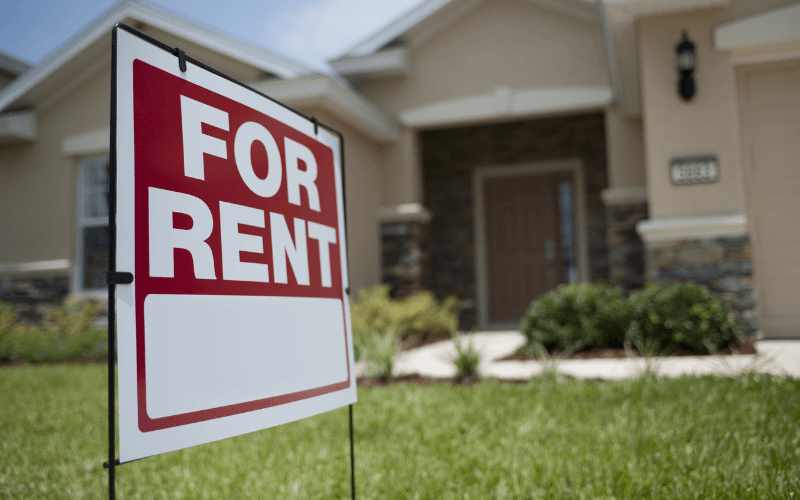Spanish rental income tax for non-residents
Planning to invest in a buy-to-let property in sunny España?
There’s no doubt, it’ll be a wise and lucrative investment.
Spanish rentals are usually very profitable, making a 4-6% yearly return on average – especially in tourist hotspots such as Marbella and Puerto Banús. However, before you sign on the dotted line and eagerly await that healthy income, there’s one thing that’s important to know.
Even as a ‘non-resident’, you will be expected to pay rental income tax in Spain.
Fortunately, this is unlikely to have too much impact on your bottom line, but it’s still better to be aware of it – to help you stay on top of your non-resident tax responsibilities, avoid any unnecessary fines and know exactly how much profit you’re likely to make.
Do you class as a resident or non-resident?
To class as a ‘non-resident’, you must stay in Spain for less than 183 days throughout the calendar year. This doesn’t have to be in one visit, but can be spread across 12 months.
If this applies to you – and you make a rental income from your property in Spain – you’re liable to pay Spanish property tax for non-residents (known as IRNR), and you must fulfil your fiscal obligations. This includes submitting a Modelo 210 tax form every quarter.
How much tax will you be expected to pay?
This depends on whether you’re an EU/EEA (European Economic Area) or non-EU/EEA resident.
EU/EEA countries include 26 EU countries (Austria, Belgium, Bulgaria, Croatia, Republic of Cyprus, Czech Republic, Denmark, Estonia, Finland, France, Germany, Greece, Hungary, Ireland, Italy, Latvia, Lithuania, Luxembourg, Malta, Netherlands, Poland, Portugal, Romania, Slovakia, Slovenia and Sweden). As well as Iceland, Liechtenstein and Norway.
All other countries, including the UK, are classed as non-EU/EEA.
It’s important to note, your status is determined by where you currently live – not your nationality. So if you’re a French national living in France, you’ll be classed as ‘EU’. But if you’re a French national living in the UK, you’ll be classed as non-EU for tax purposes.
- Non-resident tax for rental income – EU/EEA-resident
As a non-resident from the EU/EAA, you’ll be expected to pay 19% income tax.
Crucially, this is on your net yield (not on your gross yield) – i.e. the difference between the rental income you’ve acquired, and any expenses required for maintaining the rental activity.
Such expenses can include:
- notary fees
- IBI (property tax)
- rubbish collection tax
- property depreciation
- the cost of any repairs and maintenance
- neighbour community fees
- interest on any loans associated with the property, including the mortgage
Example of taxes to pay for a non-resident of Spain, living in the EU/EEA
Giovanni, who resides in Italy, decided to rent his villa in Marbella in the first quarter of 2023. He charged €1500 per calendar month. Therefore during this time, he earned €4500 in rental income, and the expenses associated with the rental were calculated at €2200.
Rental income = €4500
Deductible expenses = €2200
Net income subject to IRNR = 4500 – 2200 = €2300
Tax rate = 19%
IRNR to pay: 19% x 2300 = €437 euros
Giovanni must submit his Modelo 210 and pay €437 for the first quarter of 2023.
- Non-resident tax for rental income – non-EU/EEA resident
As a non-resident living outside of the EU/EEA, you’ll be expected to pay 24% income tax.
Unfortunately, citizens who do not reside in the EU/EEA are unable to apply for any type of tax deduction. Therefore, this 24% tax applies to the gross profit received from renting out your property in Spain (i.e. your full rental income for each quarter) – not the net yield.
Example of taxes to pay for a non-resident of Spain, living outside the EU/EAA
Jane, who currently resides in the UK, chose to rent out her apartment in Estepona for 6 months in 2023. She charged €1000 per calendar month. This means, during this time, she earned €6000 in rental income. Expenses associated with the rental were €3200.
Rental income = €6000
Expenses = €3200 (non-deductible)
Gross income subject to IRNR = €6000
Tax rate = 24%
IRNR to pay: 24% x 6000 = €1440
Jane must submit her Modelo 210 and pay €1440 in rental tax for 2023.

IRPF – an extra for non-residents
Regardless of whether you’re a non-resident currently living in or outside the EU/EEA, if your rental property remains empty for certain periods of the year, you’ll also need to declare these days – and pay another type of Spanish property tax for non-residents.
This is known as Non-Resident Imputed Income Tax.
Due annually, this is calculated by multiplying the official rateable value (valor catastral) of the property, by the imputed percentage and your personal tax rate.
The rateable value of your property can usually be found on your local tax receipt (IBI). The imputed percentage varies depending on the municipality – typically ranging between 1.1 and 2%. Whilst your personal tax rate, again, is determined by where you live.
For non-residents living in the EU, it currently stands at 19%.
For non-residents living outside the EU, it stands at 24%.
How do you pay non-resident tax in Spain?
To pay Spanish tax on rental income, you’ll need to complete the Modelo 210 tax form.
Non-resident tax is calculated quarterly – in April, July, October and January. Therefore you must submit a separate form for each quarter. If the property is jointly owned, separate forms must be submitted for each owner. The total amount of tax required will then be divided and paid according to the ownership percentages.
By law, the deadline for submitting IRNR is December 31st of the following year. For example, for the tax year of 2023, the submission must be made on or before 31st December 2024.
It’s also important to note, to submit the return, you’ll need a Spanish tax code (NIF).
When you purchase a property in Spain, you’re assigned a foreigner’s ID number (NIE). Your NIF will be the same number. But it’s still necessary to complex a separate registration for tax purposes, either online or in person at the tax office.

Don’t let non-resident taxes put you off
Here at Bromley Estates Marbella, many prospective buyers come to us either completely unaware of the tax obligations associated with rental income in Spain – or, if they are aware, concerned about the impact they’ll have on their profits.
But our advice is always the same. Whether you currently live in the EU or not, non-resident taxes in Spain are relatively small compared to the healthy annual return you’re likely to make – and investing in a buy-to-let property is, more often than not, a highly lucrative decision.
Why?
- Spain has a stable property market
Spanish real estate has developed a fantastic reputation for its stability. Over the last 10 years, property appreciation has been consistently above average.
- Affordable property prices
Rental properties in Spain are still very reasonably priced. Compared to like-for-like properties in other countries – including the UK – you get a lot more for your money.
- High rental returns
Rental rates have skyrocketed over the last 12 months. In the province of Málaga, the average rental at the end of 2023 was €13.8 per m2. An increase of 13.6% since 2022.
- Strong demand
Last year, the Costa del Sol had its biggest summer season yet, welcoming over 12.5 million visitors. Having recently been named as the no.1 travel destination for 2023 by Airbnb, this trend is likely to continue into 2024 and beyond.
Of course, your expected rental income will depend on choosing the right property in the right location – and that’s where we can help. Our specialist real estate agents have unparalleled insight into the local market, the most profitable locations and predicted rental forecasts.
Coupled with our extensive portfolio of apartments, townhouses, villas, commercial properties and development opportunities, we can assist in finding the ideal investment property to attract interest and maximise your returns – whilst also taking the relevant non-resident taxes into consideration.
So why not take a look through our listings?
If a property catches your eye or you have any questions about Spanish tax on rental income, please feel free to get in touch. You can call us at any time on +34 952 939 460 (+44 208 068 7606) or send an email to info@bromleyestatesmarbella.com.


